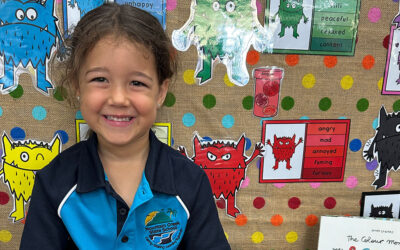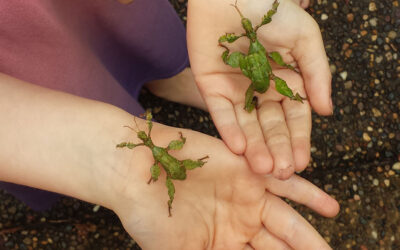Sensory processing disorder affects around one in every 20 children. Occupational therapist Paul Newcombe describes sensory processing disorder as a “neurological traffic jam” in which the brain has trouble in processing and interpreting information it receives from the senses.
It can present itself differently in each child who suffers the condition. Some can be hypersensitive to certain sensations, meaning their sensitivity to those sensations is higher than other people’s, or they can be hyposensitive, meaning their sensitivity is lower. It can affect all senses: vision, hearing, smell, touch, taste and even pressure and movement. Support group SPD Australia (www.spdaustralia.com.au) adds that children with the disorder may also present with motor skill problems and react with strong emotional behaviours, sometimes experiencing what may be described as “melt downs”.
SPD Australia provides a list of indicators that might suggest your child has a sensory processing disorder. They may:
- Seem to be in constant motion, unable to sit still for an activity
- Have trouble focusing or concentrating, can’t stay on task
- Seem to be always running, jumping, stomping rather than walking
- Bump into things or frequently knocks things over
- React strongly to being bumped or touched
- Avoid messy play and don’t like to get hands dirty
- Hate having hair washed, brushed or cut
- Resist wearing new clothing and are bothered by tags or socks
- Be distressed by loud or sudden sounds such as a siren or a vacuum
- Have poor fine motor skills such as writing and cutting, difficulty with buttons and tying shoelaces
- Have poor gross motor skills such as body co-ordination, riding a bike, swimming, running
- Hesitate to play or climb on playground equipment
- Have difficulties with balance
- Have difficulty with their eyes tracking objects and often lose their place when reading or copying from board
- Have marked mood variations and a tendency towards outbursts and tantrums
- Avoid eye contact
- Have trouble following and remembering a two to three-step instruction
- Be a fussy eater, often gagging on food
- React to smells not noticed by others
A child who is hypersensitive to noise might be easily distracted by noises other people take for granted, such as road noise. A child that is hypersensitive to smell might think certain foods smell bad and refuse to eat them. On the other hand, a child who is hyposensitive to touch might have a much higher pain threshold than other children and might not react at all when they hurt themselves. This, clearly, can have an impact on a child’s ability to carry out day-to-day activities, such as going to school.
Newcombe told ABC News: “It impacts how a child feels, their attitude and performance. For example, if a child doesn’t like touch, when the child goes to school it’s not just mum and dad touching them but maybe 10 or more children and that could set them off and cause a melt-down. Or they might be sensitive to materials so creases in their socks, wool in their uniform, or tags in their clothes could set them off.”
Tactile defensiveness is hypersensitivity to touch. This can present itself as becoming easily agitated with labels in clothes, refusing to get messy during play with things like glue or playdoh and not liking soft foods such as mashed potato, only crunchy food such as nuts.
Aimee York, director and principal occupational therapist at KinderCloud, offers some advice on helping a child with tactile defensiveness: “Use a graded approach to messy play. Leave wet textures (goo, wet mud, play dough) until last. Start with dry textures such as pebbles, marbles and uncooked rice to play with. Experiment with food. Don’t be afraid to make a game of it and get your child involved. Make magic potions using the blender or potato masher. Try different methods of cooking such as steaming vegies or boiling them in a chicken stock to add flavour. Again, use a graded approach to introduce different textures of food into your child’s diet.”
SPD Australia provides links to toys and clothing suitable for children with sensory processing disorder. It also advocates the use of a home-based therapy called The Listening Program. This program uses music to stimulate different areas in the brain and improve the brain function, reduce stress, and train the brain in the auditory skills needed to effectively listen, learn and communicate. To find out more, visit www.spdaustralia.com.au/the-listening-program/.
York said getting in touch with an occupational therapist can help as they specialise in sensory processing challenges. Or find a local occupational therapist at www.otaus.com.au/find-an-occupational-therapist.
You may also like…
Parenting a highly sensitive child
Anxiety in kids – know the signs
What is Behavioural Therapy?


